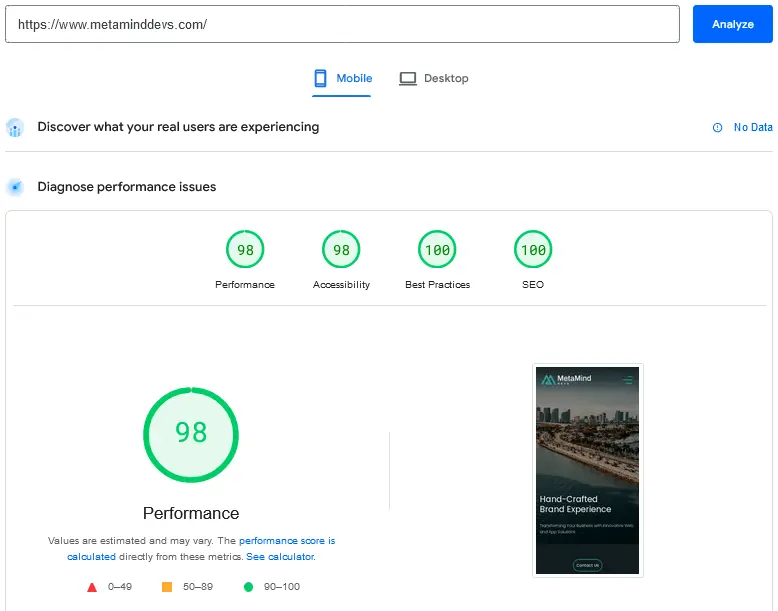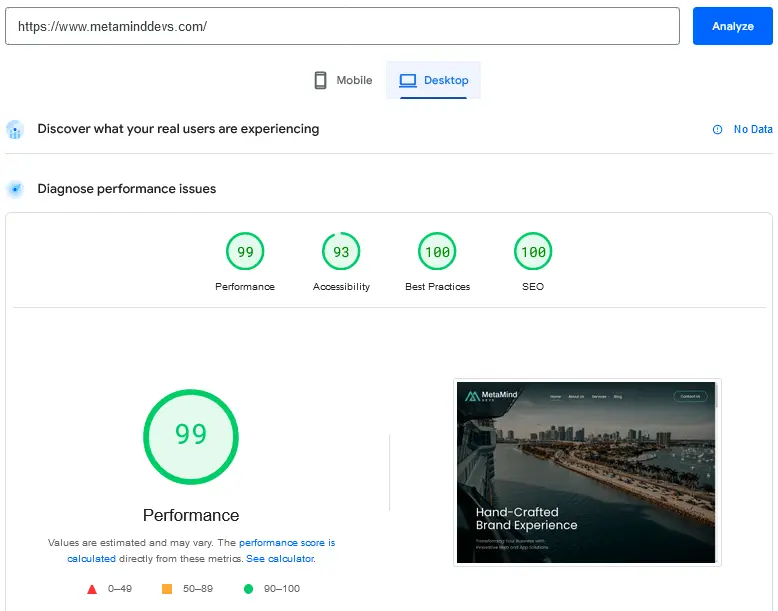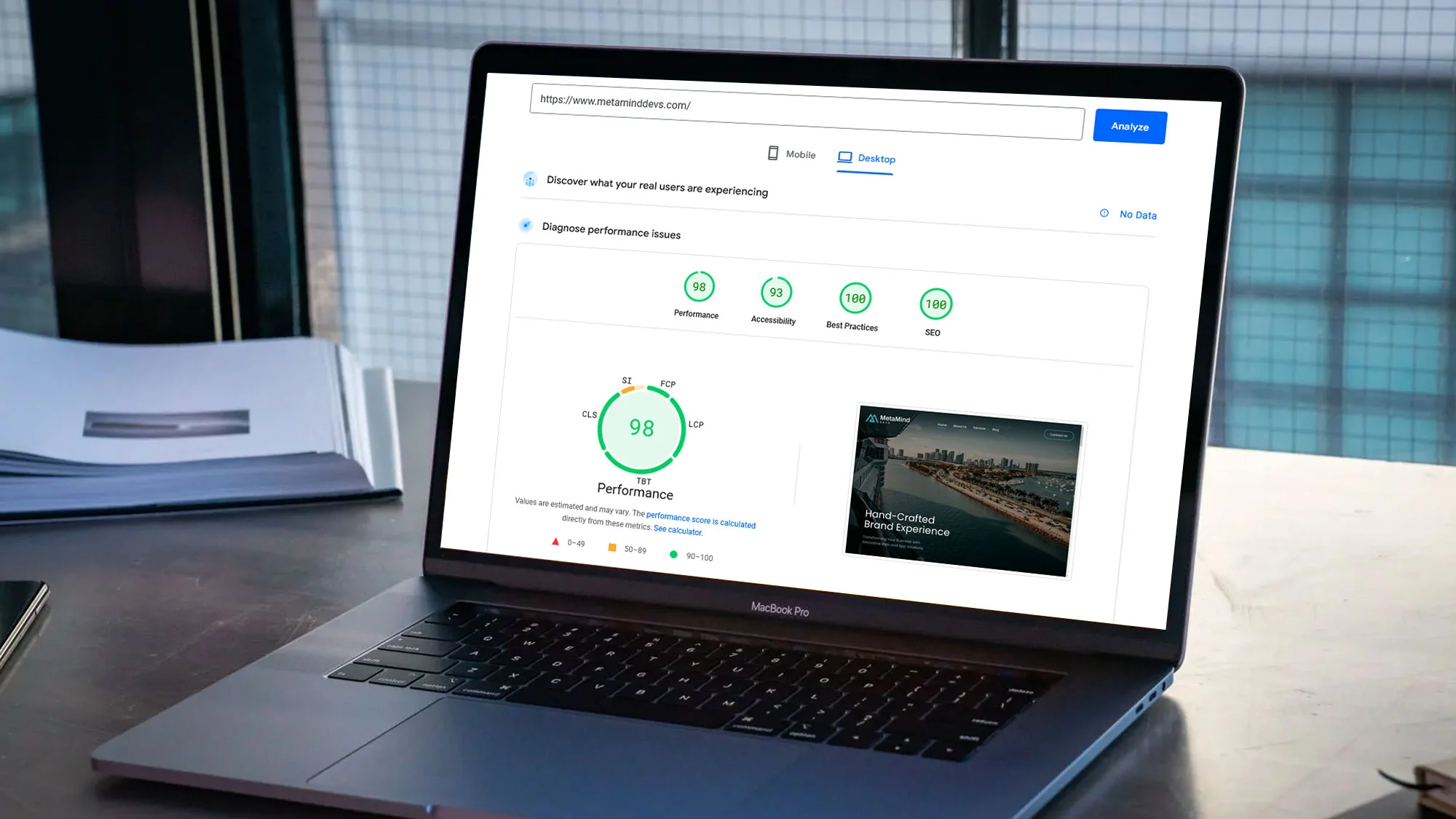In today’s fast-paced digital environment, your website’s speed and performance can significantly impact your user engagement, retention, SEO rankings, and overall success. To demonstrate the importance of optimizing website performance, we’ll explore how Metamind Devs enhanced their site’s speed and user experience.
Initial Assessment
The first step in improving your website’s performance is to understand its current state. For Metamind Devs, we started with a comprehensive assessment using popular tools such as Google PageSpeed Insights, GTmetrix, and WebPageTest. These tools helped us pinpoint issues such as:
- Long load times
- Unoptimized images
- Excessive HTTP requests
- Inefficient use of caching
Strategic Improvements


1. Optimizing Images
Images often consume a significant portion of bandwidth. We optimized images on Metamind Devs by compressing them and converting them to modern formats like WebP, which offers superior compression and quality characteristics compared to traditional formats.
2. Reducing HTTP Requests
Every piece of your website (from scripts to stylesheets) makes HTTP requests. We reduced these by:
- Combining CSS and JavaScript files.
- Using CSS sprites to combine background images into one file.
- Removing unnecessary plugins.
3. Leveraging Browser Caching
Caching stores copies of files so that returning visitors can load your website faster. We implemented aggressive caching strategies, which included setting expiration dates for resources like images, JS, and CSS files.
4. Using a Content Delivery Network (CDN)
A CDN stores a cached version of your website in multiple geographical locations to reduce the latency for users who are far from the server. Metamind Devs implemented a CDN to ensure that their global audience experienced quicker load times.
5. Improving Server Response Time
We analyzed and optimized the backend performance by upgrading to a more robust hosting solution, optimizing the database, and reducing server processing time through better coding practices.
Results
After implementing these strategies, Metamind Devs saw significant improvements:
- Load Time Reduction: The site’s load time improved by over 50%, providing a faster browsing experience.
- SEO Ranking Improvement: Faster load times contributed to better search engine rankings.
- Enhanced User Engagement: Reduced bounce rates and increased page views per session were clear indicators of improved user satisfaction.
Continuous Improvement
Optimizing a website’s performance is not a one-time task but a continuous process. Here are a few ongoing strategies that Metamind Devs will continue to implement:
- Regularly monitoring the site’s performance and addressing new issues as they arise.
- Keeping up with the latest web development technologies and standards.
- Conducting A/B testing to refine user experience further.
Conclusion
The case study illustrates that optimizing website performance is crucial for any business aiming to succeed online. By continuously monitoring and improving various aspects of your website, you can ensure it remains fast, efficient, and ahead of the competition.
For any business looking to improve their online presence, consider these proven strategies and see how you can transform your website’s performance.
Transform Your Digital Presence Today!
At Meta Mind, our digital marketing services are designed to boost your website’s performance, enhance user engagement, and improve SEO rankings. Contact us now to find out how we can help you achieve your online goals.

